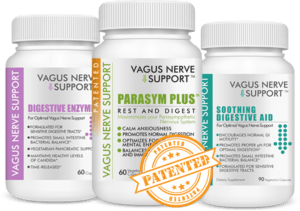
by Dr. Diana Driscoll, Optometrist | Mar 4, 2020 | Dry Eye, Science
Have you tried everything to keep your eyes moist? Eye drops, eye ointments, and even punctal plugs boost moisture or try to retain moisture, but they do not address the underlying causes of low tear production. Therefore, these products are limited in what they can...

by Dr. Diana Driscoll, Optometrist | Aug 8, 2019 | Inflammation, Low Acetylcholine, Science, Uncategorized, Vagus Nerve
Exercise is so good for us! It promotes circulation, improves cardiovascular health, helps muscle, bone, and joint disease, helps with metabolic disorders and weight control, and even improves psychological well-being. Studies show that regular exercise dramatically...

by Dr. Diana Driscoll, Optometrist | Mar 29, 2019 | Low Acetylcholine, Science
What is Acetylcholine? Acetylcholine is a neurotransmitter — a chemical messenger that allows your nerves to communicate with each other and with our organs. It is important to identify the symptoms of low acetylcholine because acetylcholine is our most common...

by Dr. Diana Driscoll, Optometrist | Mar 4, 2019 | Gastroparesis, Science
The gallbladder is an organ that allows the proper digestion of fats. As a part of the biliary system, the gallbladder is involved in the production, storage, and transportation of bile. Bile allows us to digest fats, which then provides us with fat-soluble vitamins...

by Dr. Diana Driscoll, Optometrist | Mar 4, 2019 | Gastroparesis, Science
How Does The Vagus Nerve Support Every Aspect Of Digestion? Your digestive system depends upon the vagus nerve for proper function. Almost every aspect of normal digestion, motility (movement of the food/stool), and nutrient absorption depends upon proper vagus nerve...








